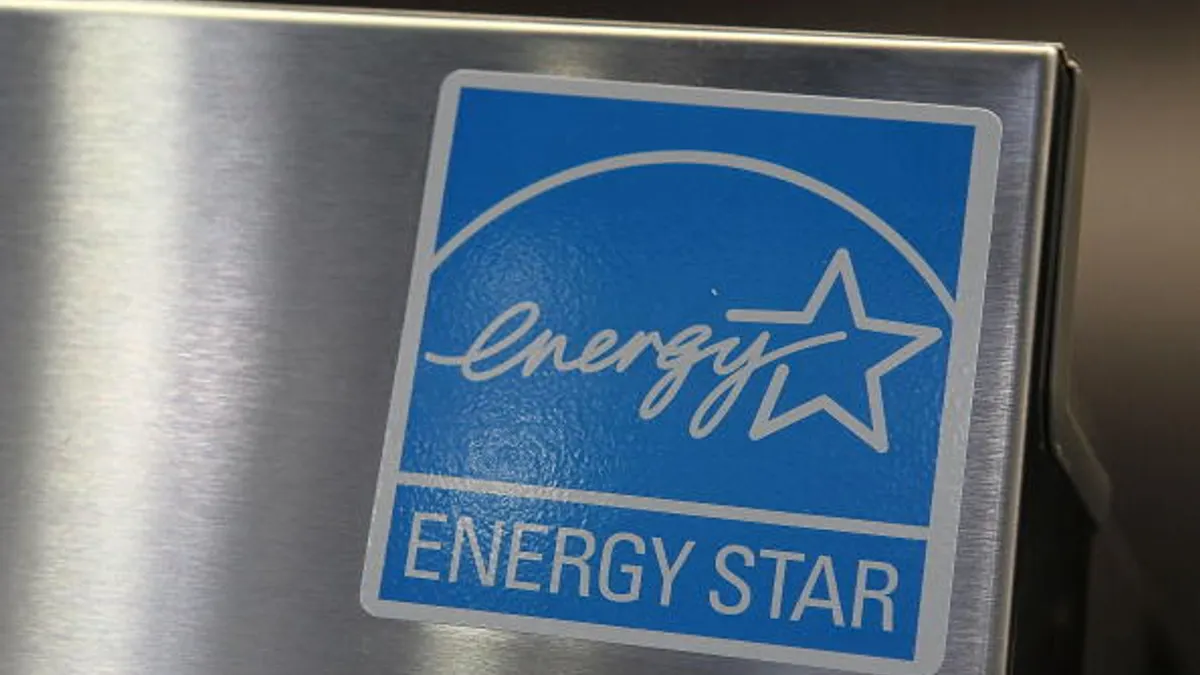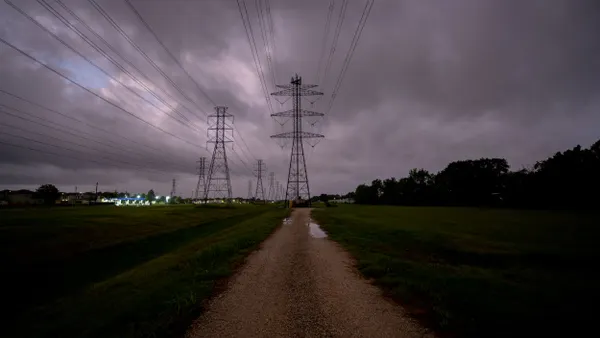Dive Brief:
- The Environmental Protection Agency’s plan to eliminate the Energy Star program is a “misguided decision [that] would be counterproductive to our national housing, economic, and electricity goals,” Sen. Ruben Gallego, D-Ariz., wrote today in a letter to EPA Administrator Lee Zeldin and provided in advance to Utility Dive.
- EPA announced “organizational improvements” in May that would phase out the popular program, which has helped consumers identify energy-efficient home appliances for more than 30 years.
- While Gallego’s letter honed in on Energy Star’s potential impacts on energy prices, other lawmakers have focused on the program’s legal standing. Energy Star is “protected under federal statute and thus illegal for the Administration to terminate unilaterally,” 22 senators wrote in a May 20 letter to Zeldin and Secretary of Energy Chris Wright.
Dive Insight:
Efficiency advocates argue that Energy Star is a popular, cheap and effective program — and also protected by law.
“At a time when American families are grappling with rising energy and housing costs and our nation faces mounting energy and climate challenges, eliminating a highly successful program that lowers utility bills and reduces emissions is indefensible,” Gallego wrote.
“EPA will review the letter and will respond through appropriate channels,” an agency spokesperson said in an email.
More than 2,500 builders, developers and manufactured housing plants are active in the Energy Star program, Gallego noted. In 2023, about 12% of all new U.S. homes were Energy Star compliant.
The program was created in 1992 under President George H.W. Bush and has helped consumers save more than $500 billion in energy costs and 5 trillion kWh since its inception, according to the Energy Star website.
“This program saves families and businesses more than $40 billion every year with a budget of less than $40 million. It’s an astonishingly good deal,” Steven Nadel, executive director of the American Council for an Energy-Efficient Economy, said in a statement.
Congress directed the government to run the Energy Star program, Nadel also noted. “Until now, the EPA has implemented that statutory obligation.”
Lawmakers signing on to the May 20 letter defending Energy Star also noted that the program could not be terminated without Congress.
“The program [is] protected under federal statute and thus illegal for the Administration to terminate unilaterally,” the senators wrote. The group includes Sen. Peter Welch, D-Vermont; Sen. Bernie Sanders, I-Vermont; Sen. Amy Klobuchar, D-Minn.; and Sen. John Fetterman, D-Pa.
The Energy Policy Act of 2005 says that responsibilities for the Energy Star program “shall be divided between the Department of Energy and the Environmental Protection Agency in accordance with the terms of applicable agreements between those agencies.”
In April, more than 1,000 companies and organizations lobbied EPA to maintain the program, noting that “a typical household can save about $450 on energy costs each year” by choosing Energy Star products.














